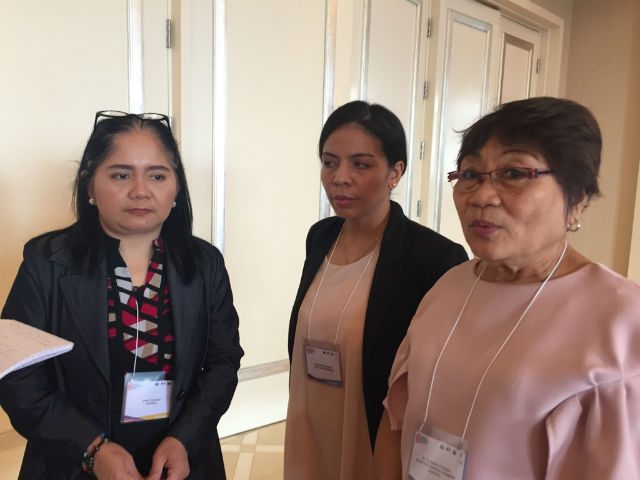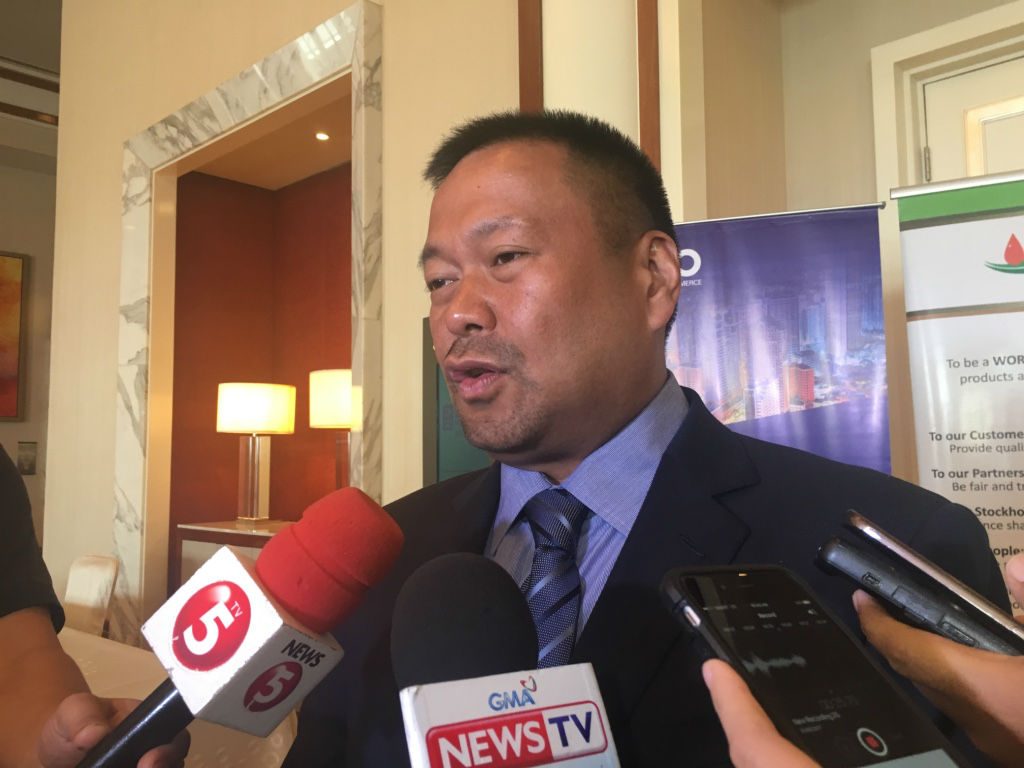SUMMARY
This is AI generated summarization, which may have errors. For context, always refer to the full article.

MANILA, Philippines – As Congress tackles the proposal to impose a P10-per-liter excise tax on sugar-sweetened beverages, nutritionists reminded the public that sugar remains a vital nutrient for healthy meal planning.
Nutritionist-dietician Joan Sumpio and former Food and Nutrition Research Institute (FNRI) director Trinidad Trinidad dispeled the negative perception on sugar intake during a forum on the health effects of the proposed excise tax on sugary drinks held on Thursday, August 31. (INFOGRAPHIC: How tax reform hits your favorite drinks)
“For these poor people who couldn’t meet the requirement, it still helps them meet their dietary needs. I know they’re saying it’s a poor excuse that these sugar-sweetened beverage gives calories. But let’s face the reality: It really contributes,” Sumpio said in Filipino.
She said the 8th National Nutritional Survey showed Filipinos’ table sugar consumption does not even go above 10% of their total food intake. Sumpio also cited a FNRI study which showed that beverages’ contribution to the total energy intake of Filipinos is “relatively low.”

Trinidad, meanwhile, explained why sugar should remain in a person’s diet if he or she wants to be healthy.
“It adds up to palatability. Second, it’s a preservative, right? So you can prolong the shelf life. Then third, it is a source of energy. Carbohydrates, like sugar, are our main sources of energy,” the doctor said in Filipino.
Trinidad said the imposition of excise tax on sugary drinks may decrease sugar intake in the country, and lead to more “undernourished” Filipinos.
“Talagang maglo-lower ang consumption kasi tataas ang presyo. Siyempre baka mas dumami ang mga undernourished (Consumption will decrease because price will increase. This might lead to more undernourished people),” said Trinidad.
Both Sumpio and Trinidad said consuming the right amount of all necessary nutrients, not just sugar, will help contribute to one’s good health.
The House approved in June the proposed comprehensive tax reform package, which includes a P10-per-liter tax on sugary drinks.
Lawmakers argued this would reduce cases of obesity among Filipinos and also generate P47 billion in government revenues.
Tax the sugar content instead

The bill is still pending in the Senate, amid the opposition of several senators to imposing additional taxes on sugar-sweetened beverages.
Senator Joseph Victor “JV” Ejercito, a panelist at the forum, said he is open to amending the bill to just tax sugary drinks based on sugar content, not volume.
“If [reducing sugar intake] were really a concern, they should be basing taxing it based on content, not on volume because it is more of a revenue-generating measure, not a health measure,” said Ejercito, who drew applause from the crowd of mostly health advocates.
He also urged President Rodrigo Duterte’s economic managers to give legislators the “elbow room” to reduce the negative effects of the tax reform proposal on the poor.
“So the Department of Finance, the economic managers, they have to give us some elbow room on how we can refine and improve the proposed tax reform package that would soften, if not lessen, the impact on the poor,” said Ejercito. – Rappler.com
Add a comment
How does this make you feel?
There are no comments yet. Add your comment to start the conversation.